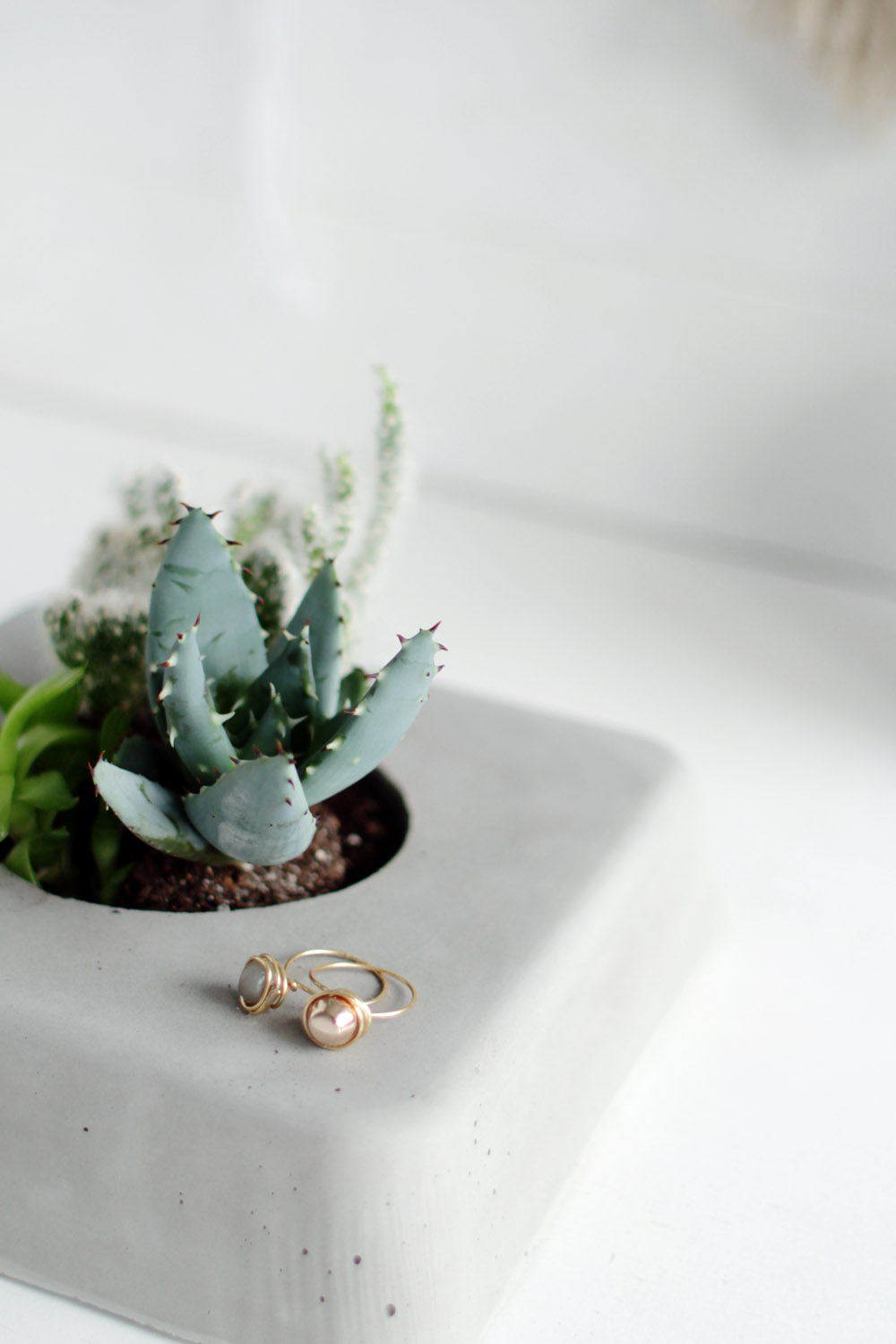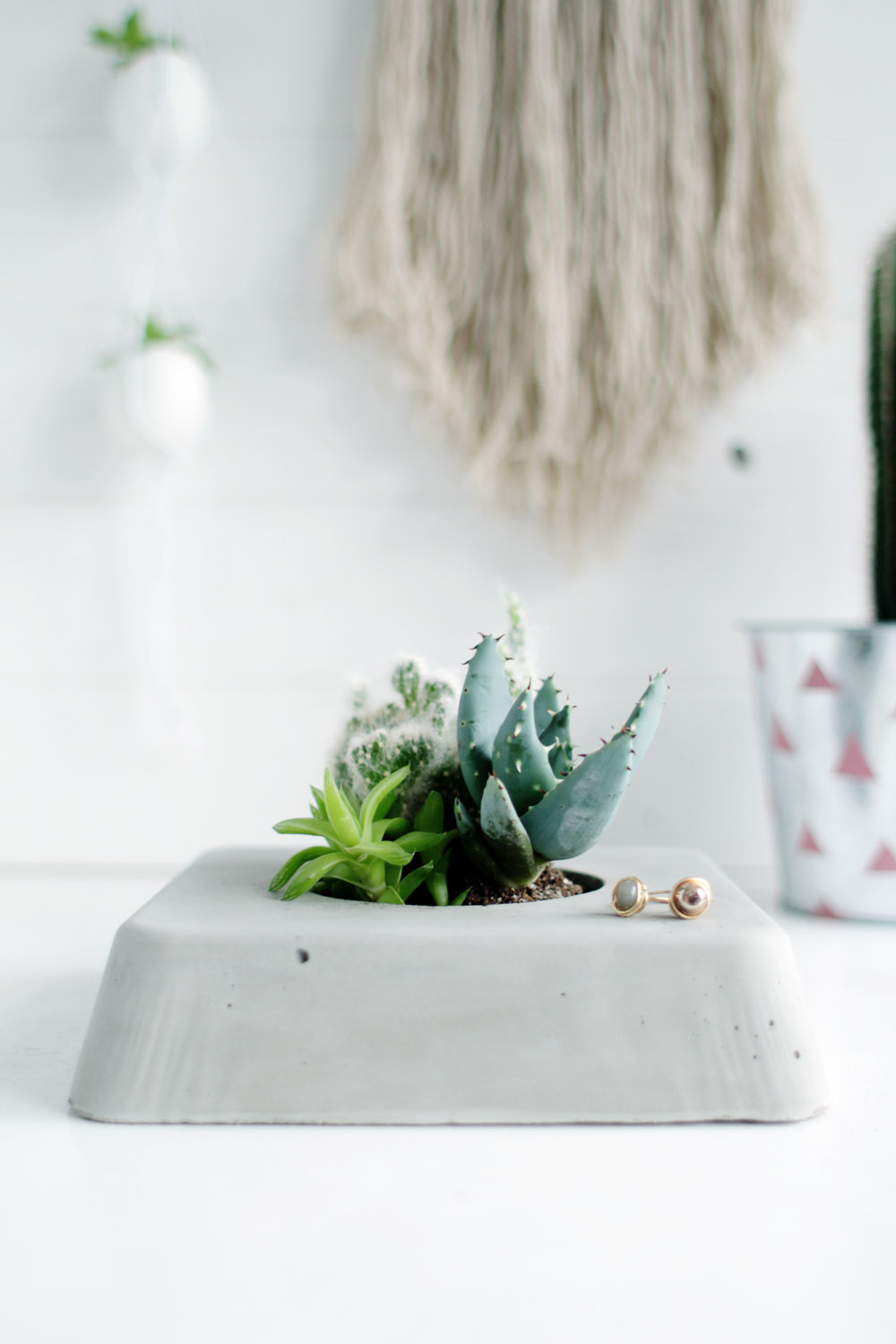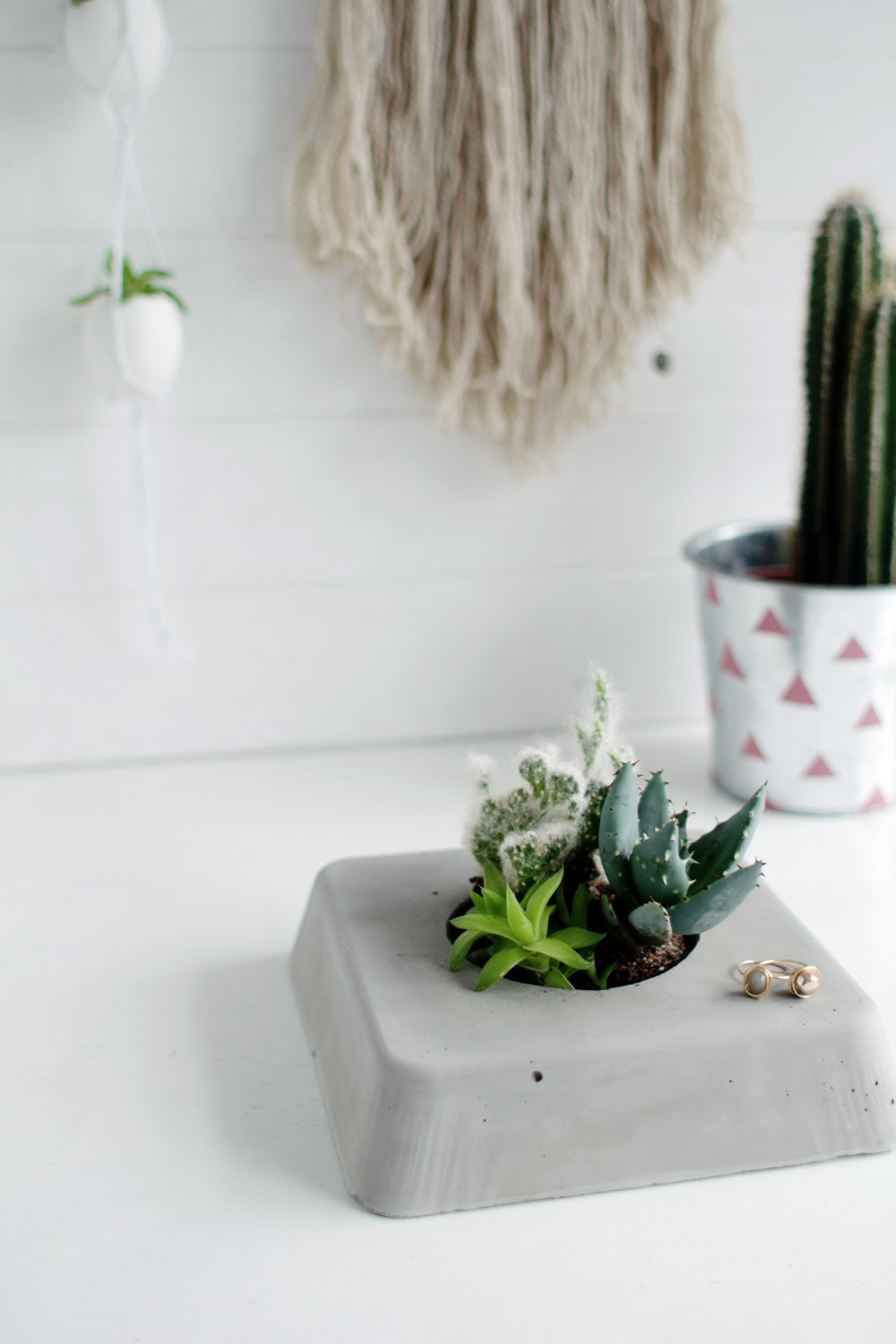DIY Concrete Planter Box For Succulent Plants
Plants have always been a go-to in interior design, but over a decade or so they became second to a more man-made alternative. Art, ceramics, and flower bouquets became a preferred alternative to decorate tables and window ledges. Instead of green, we have gone for man-made. But now these two worlds are combining. A shift back to 1970’s interior styles has given us free roam to create miniature jungles in our homes.

Using a combination of large potted house plants, spectacular succulent combinations and greenery hanging from every corner we can create a tropical world full of colour, life and vibrance. An ever-growing way of decorating that changes with the season.
Related: DIY Planters You Can Make From Scratch Or Recycled Materials

The only problem we have is finding pots to keep all of these plants in now. This is where we can bring our own ideas and creativity into the mix. Making your own planters doesn’t need to be complicated or difficult. As long as you have a waterproof container to catch the excess water in you can use any material to construct a planter that is completely unique. Think fabric, metal, clay or even concrete. I’ve found it’s useful to collect thin plastic food containers that are easily cut to size for this purpose. I’ve made this small succulent garden using one of these containers to hold the plants. It’s actually so much easier than it looks.

Materials you’ll need to build a concrete planter:
- Non-stick cake baking tray
- Small, plastic container
- Concrete
- Throw away container for mixing concrete
- Throw away stirrer for mixing concrete
- Scissors
- Blue/White Tac
- Small succulents
How to make a concrete planter box:


Step 1: Finding a plastic container
Cut down (or choose) a plastic container that is shallower than your baking tray. You will need it to be at least 1 cm smaller to allow a sturdy layer of concrete to form underneath.


Step 2: Add the plastic container into the tray
Roll out a long thin tube of Tac and press it onto the inside of the small container. Make sure that the Tac comes up over the edges of the container just slightly without folding over onto the outer edge. Press this down onto the inside of the baking tray. You can position it where ever you would like the hole for the plants to be. I’ve gone for the center of the block.
At this point you should cover the remaining surface of the tray with a thin layer of either Vaseline of cooking spray to make removing the set concrete easier later on.


Step 3: Prepare the concrete mixture
Mix the concrete according to the packaging instructions and pour it into the tray. Hold the container in place while you pour a little concrete all around the base to stop it shifting out of place. If you’re using a small container to mix the concrete you might need to repeat this step a number of times until the tray is completely full and you cannot see the small container anymore.

Step 4: Remove air bubbles
Now the tray is full of concrete wiggle it gently to encourage all of the air bubbles to rise to the surface.

Step 5: Let it dry
Leave to set for at least 3 days. Don’t be tempted to remove the concrete before as it will be brittle and break or crumble. After 3/4 days carefully pull the sides of the baking tray out to break the seal between the tray and the concrete. Then turn the tray onto a flat surface much like you would turn a cake onto a plate – resting the surface on top of the tray and then turning them both together at the same time. Gently tap the tray whilst upside down to release the concrete.

Step 6: Ready for sanding
Once you’ve taken the concrete out of the tray leave for another couple of hours so that the surface can be exposed to the air and harden fully.

Step 7: Sand paper the edges
Remove the Tac and sand down any rough edges with a fine sanding paper. All that’s left to do now is decide which succulents to plant in your new garden!










The thing I think I love the most about this design is its versatility. Use any shape cake tray to get different looks. You can also use the planter in a range of different places. It makes a really unique table centerpiece, a great workspace keep-safe space or even uses the planter as a doorstop to get a little green in every space you can!